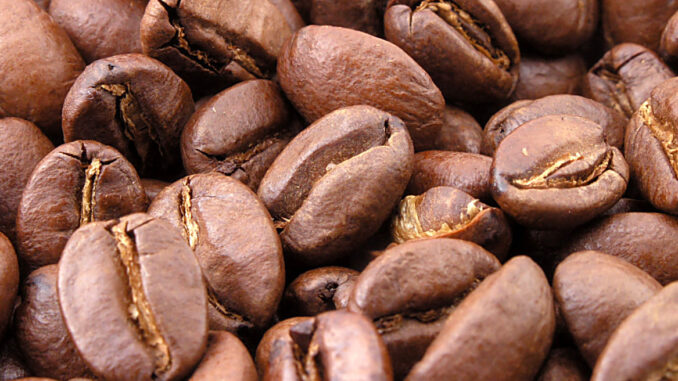
Maracaibo coffee is a legendary name in the world of coffee, representing the high-quality Arabica beans that once made Venezuela one of the leading coffee exporters in the 19th and early 20th centuries.
Named after the port city of Maracaibo, these coffees were shipped across the Atlantic to Europe, where they became synonymous with rich flavor, sweet aroma, and smooth body.
The best-known Maracaibo coffee varieties come from two regions in the Venezuelan Andes — Mérida and Trujillo — both producing distinctive yet equally remarkable coffees.
🌍 Origin and Background
The Maracaibo region encompasses part of Venezuela’s Andean coffee belt, where mountain ranges and fertile valleys create perfect conditions for Arabica cultivation.
Although Maracaibo itself is a coastal port, the coffee that bears its name comes from the surrounding highlands, especially the states of Mérida and Trujillo.
These two areas produce coffees that share a common Andean character — smooth, aromatic, and balanced — yet each has its own distinct flavor identity.
🏔️ 1. Mérida Coffee
The Mérida variety is grown in the high-altitude mountains of western Venezuela, typically between 1,200 and 1,800 meters above sea level.
It’s one of the most refined and elegant of all Venezuelan coffees, celebrated for its sweet aroma, bright acidity, and clean, silky finish.
Flavor Profile:
- Aroma: Floral with honey and caramel notes
- Taste: Sweet and balanced with hints of chocolate, nuts, and mild fruit
- Acidity: Bright but smooth
- Body: Medium, with creamy texture
- Finish: Clean and lingering
Growing conditions:
- Altitude: 1,200–1,800 m
- Climate: Cool Andean temperatures (16–22°C)
- Soil: Volcanic, rich in organic matter
- Farming: Shade-grown and hand-harvested
Mérida coffee is known for its refined, harmonious cup — gentle, aromatic, and deeply satisfying.
🌄 2. Trujillo Coffee
The Trujillo variety is cultivated in the neighboring state of Trujillo, another highland region east of Mérida.
It shares many of the same growing characteristics but tends to produce a richer and fuller-bodied cup, with slightly darker sweetness and nutty depth.
Flavor Profile:
- Aroma: Sweet and nutty, with cocoa and brown sugar tones
- Taste: Smooth and rich, featuring chocolate, caramel, and spice
- Acidity: Mild and balanced
- Body: Medium to full
- Finish: Warm and earthy with subtle sweetness
Growing conditions:
- Altitude: 1,000–1,600 m
- Temperature: 18–24°C
- Rainfall: 1,500–2,000 mm annually
- Farming: Traditional smallholder farms, shade-grown
Trujillo coffee is appreciated for its fuller body and deeper sweetness, making it ideal for espresso and medium-dark roasts.
☕ Shared Qualities of Maracaibo Coffees
Although Mérida and Trujillo have distinct characteristics, they share the classic Maracaibo coffee traits that made Venezuela famous:
- 100% Arabica beans
- Smooth, balanced cup profile
- Sweet aroma and mild acidity
- Clean finish with no bitterness
- Shade-grown and hand-harvested
These coffees combine elegance and richness, reflecting the natural beauty and craftsmanship of Venezuela’s Andean farmers.
🌱 Sustainability and Tradition
Both Mérida and Trujillo coffees are grown primarily by small family farmers, many using traditional and sustainable practices passed down for generations.
Sustainability highlights:
- Shade-grown farms protecting biodiversity
- Use of natural compost and organic fertilizers
- Minimal chemical inputs
- Water conservation during processing
- Support from small cooperatives for fair pricing
This eco-friendly approach maintains not only the quality of the coffee but also the health of the Andean environment and local communities.
🌾 Processing Methods
Most Maracaibo coffees are washed (wet-processed), a method that enhances clarity and sweetness.
The process emphasizes the natural flavor nuances of each regional variety.
Typical steps:
- Selective hand-picking of ripe cherries.
- Pulping to remove fruit.
- Fermentation for 12–24 hours.
- Washing with clean mountain water.
- Sun-drying on patios or raised beds.
This traditional process produces the clean, balanced flavor that defines Venezuelan Andean coffee.
☕ Brewing Recommendations
Maracaibo coffees — both Mérida and Trujillo — are versatile and perform beautifully across various brewing styles.
Recommended brewing methods:
- Pour-over (V60 or Chemex): Highlights brightness and floral aroma.
- French Press: Brings out sweetness and creamy texture.
- Espresso: Emphasizes chocolate, nutty tones, and depth.
- Drip coffee maker: Delivers a smooth, balanced everyday cup.
Use medium grind and water around 93°C (199°F) for optimal flavor extraction.
❤️ Final Thoughts
The Maracaibo coffee tradition is one of Venezuela’s great contributions to the world of coffee.
Whether from Mérida’s refined mountains or Trujillo’s fertile valleys, these coffees represent the soul of the Venezuelan Andes — balanced, aromatic, and naturally sweet.
Each sip tells the story of a region rich in history, culture, and craftsmanship.
☕ Maracaibo coffee — two regions, one legacy of excellence.
DeliciousPath: Enjoyment in Every Moment
Explore the Gourmet on Board category for exquisite flavors that elevate your meals, even when you’re on a boat, and the Coffee category for aromatic coffee blends that make every moment special. DeliciousPath is here to turn every experience into something unforgettable!






















